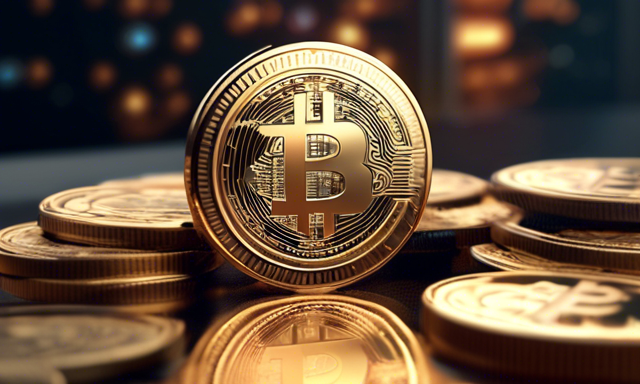Understanding the Basics of Bitcoin: A Beginner’s Guide
Welcome to the world of cryptocurrency! If you’re new to this exciting digital space, you might feel overwhelmed with the jargon and technical terms surrounding it. But fear not – this article will guide you through the basics of Bitcoin and help you understand this revolutionary form of currency.
So, what exactly is Bitcoin? Well, Bitcoin is a decentralized digital currency that was invented in 2008 by an unknown person (or group) using the name Satoshi Nakamoto. Unlike traditional currencies, such as the US dollar or the Euro, Bitcoin is not controlled by any central authority, like a bank or government.
Now, you might be thinking, “How does Bitcoin work?” It’s actually quite simple. Transactions made with Bitcoin are recorded on a public ledger called the blockchain. This blockchain is essentially a decentralized database that is maintained by a network of computers called nodes. When you make a Bitcoin transaction, it gets added to a block which is then verified by these nodes. Once the block is verified, it is added to the blockchain, making the transaction immutable and secure.
One of the key features of Bitcoin is its limited supply. Unlike traditional currencies that can be printed infinitely, there will only ever be 21 million Bitcoins in existence. This scarcity is what gives Bitcoin its value and makes it a popular investment.
Now that you have a basic understanding of Bitcoin, you might be wondering how to get your hands on some. To acquire Bitcoin, you need a digital wallet, which is essentially a software that allows you to securely store, send, and receive Bitcoin. There are various types of wallets available, such as desktop wallets, online wallets, and hardware wallets. Choose one that suits your needs and preferences.
After setting up your wallet, you can purchase Bitcoin from cryptocurrency exchanges or from other individuals in peer-to-peer transactions. These exchanges function like traditional stock exchanges, where you can buy and sell Bitcoin at market prices. It’s important to do your research and choose a reputable exchange that offers good security measures and has a user-friendly interface.
Once you have acquired Bitcoin, you can use it for various purposes. Many online retailers and service providers now accept Bitcoin as a form of payment. You can also hold onto it as an investment, just like you would with stocks or gold. Remember to keep your wallet secure and backup your private keys to ensure the safety and accessibility of your funds.
Another topic that often comes up when discussing Bitcoin is mining. Bitcoin mining refers to the process of adding new transactions to the blockchain and creating new Bitcoins. It involves using powerful computers to solve complex mathematical problems. Miners are rewarded with newly minted Bitcoins for their efforts. However, with the increasing difficulty of mining and the energy consumption associated with it, mining has become more difficult for individuals and is now mostly done by large companies or mining pools.
Now that you have a solid understanding of Bitcoin, you might have some lingering questions. Here are some frequently asked questions to help address any concerns or queries you may have:
Frequently Asked Questions
1. Is Bitcoin legal?
Yes, Bitcoin is legal in most countries. However, regulations and laws regarding cryptocurrency may vary, so it’s important to familiarize yourself with your local regulations.
2. Is Bitcoin secure?
Bitcoin transactions are highly secure due to the use of cryptography and the decentralized nature of the blockchain. However, it’s important to follow best security practices, such as using strong passwords and enabling two-factor authentication.
3. Can I lose my Bitcoin?
If you lose access to your wallet or forget your private keys, it can be difficult or impossible to recover your Bitcoin. Therefore, it’s important to backup your wallet and keep your private keys safe.
4. Can I send Bitcoin to anyone?
Yes, you can send Bitcoin to anyone with a Bitcoin address. Just make sure you have the correct address and double-check before initiating any transactions.
5. Can I buy fractions of a Bitcoin?
Yes, Bitcoin is divisible, and you can buy and sell fractions of a Bitcoin. The smallest unit of Bitcoin is called a satoshi, which is equivalent to 0.00000001 BTC.
Congratulations! You now have a solid foundation of knowledge about Bitcoin. Remember, the world of cryptocurrency is constantly evolving, so it’s important to stay informed and keep learning. Happy investing!





 By
By
 By
By

 By
By
 By
By
 By
By